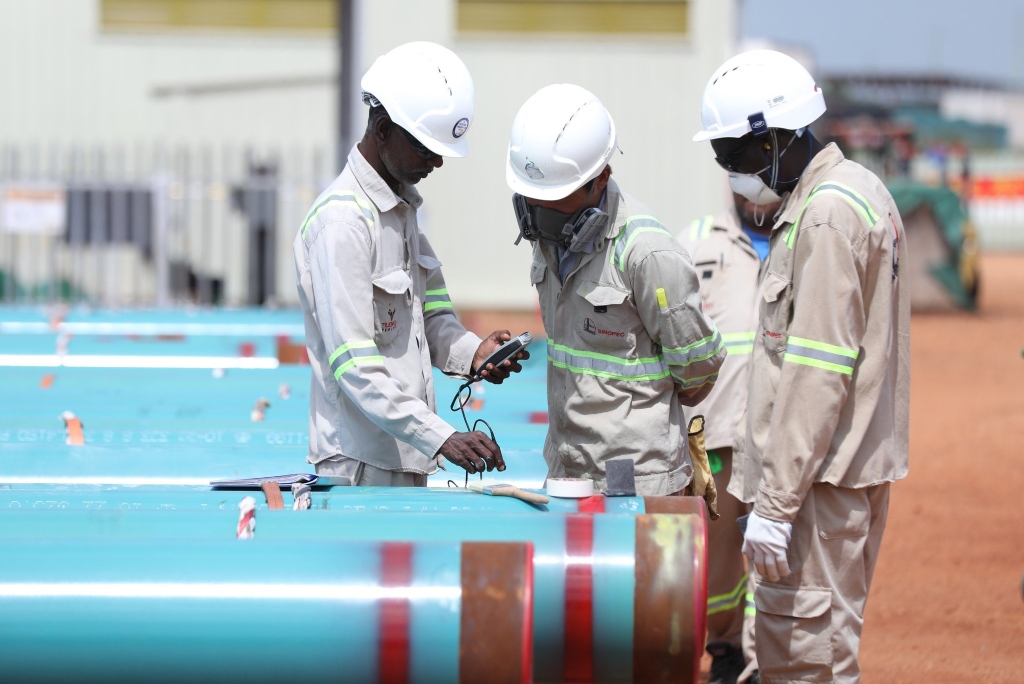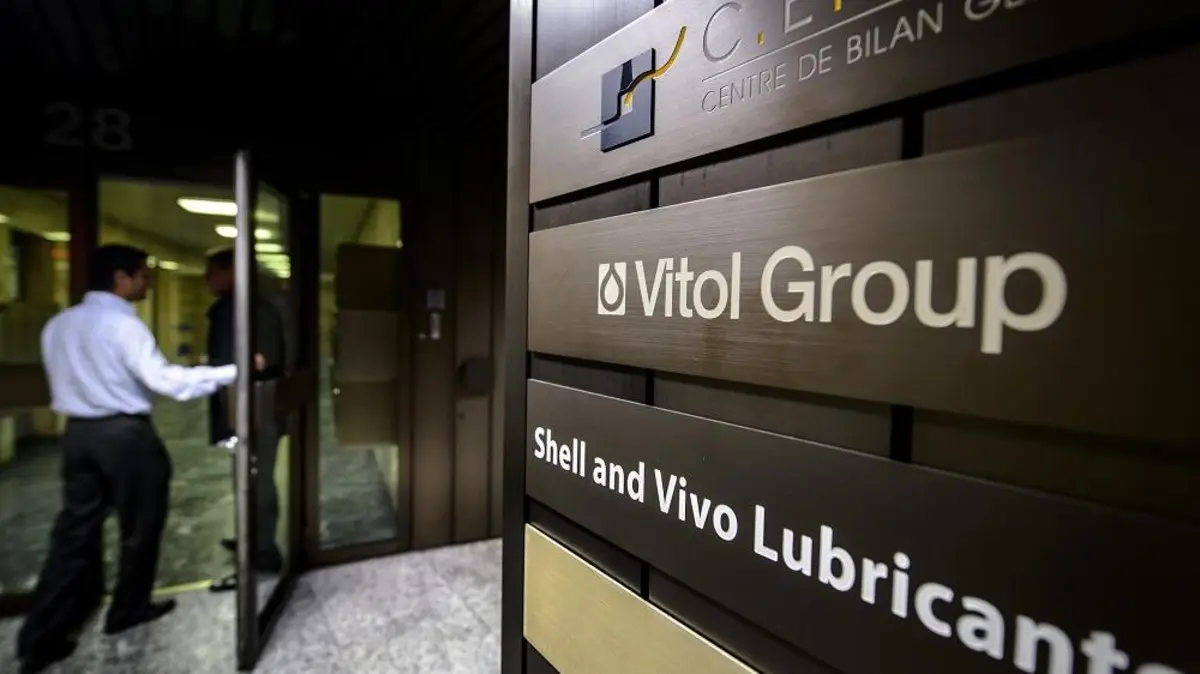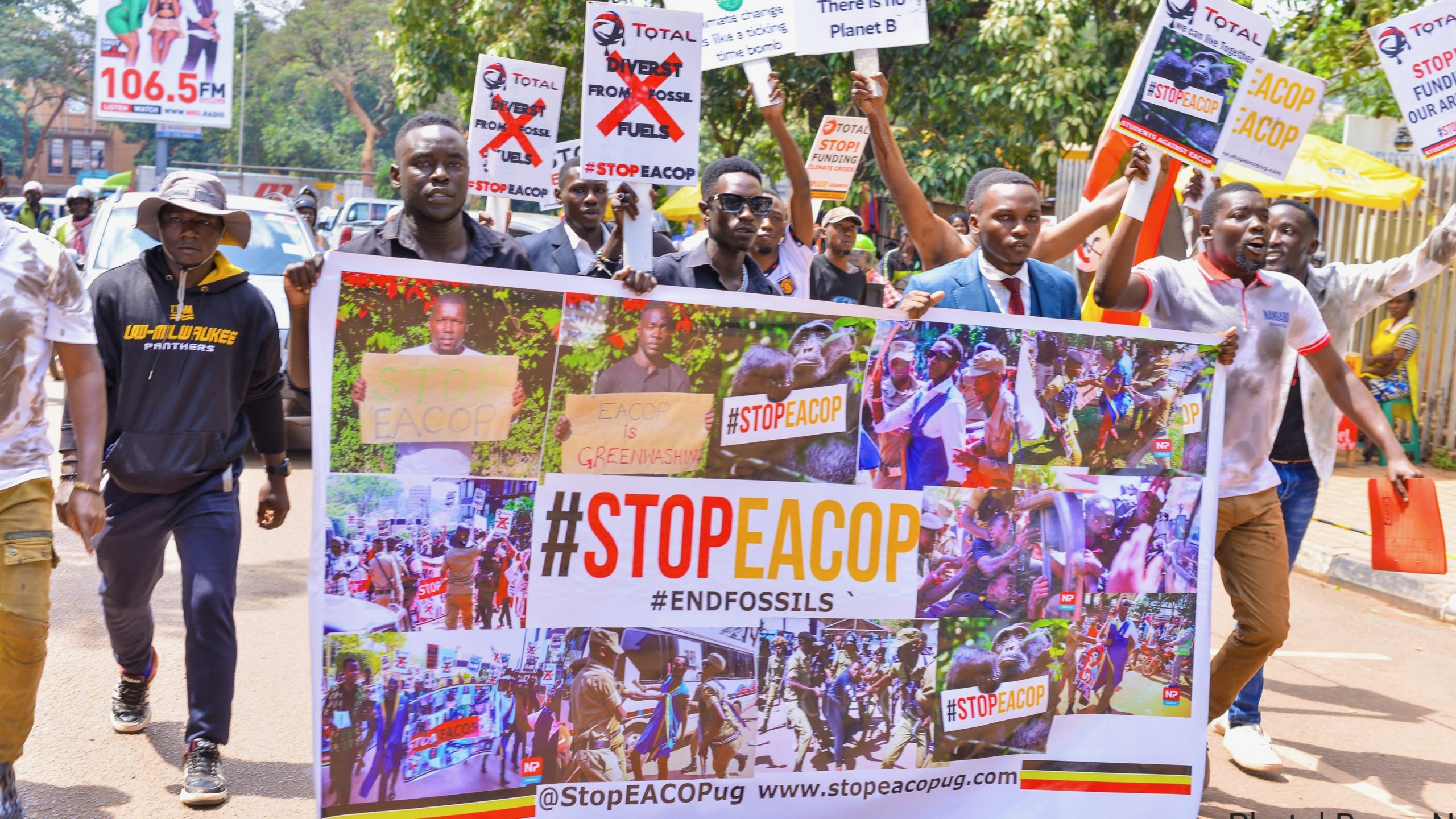(Kampala) – The Ministry of Energy has revealed that as of June 2024, a total of 47,682 Ugandans are employed in the country’s oil, gas, and related industries. These include 13,389 direct jobs and an estimated 34,293 indirect jobs. This was announced during the ministry’s presentation of energy sector achievements at the Office of the President auditorium in Kampala on Tuesday, November 19, 2024.
Alongside these employment figures, the ministry highlighted that over 14,000 Ugandans have been trained and certified in critical oil and gas skills such as welding, health safety and environment protocols, heavy goods vehicle operations, and scaffolding.
Ministry Permanent Secretary Eng. Irene Batebe emphasized the success of initiatives like the Micro, Small, and Medium-sized Enterprises (MSMEs) Business Linkages Project, which has trained 280 businesses in districts along the East African Crude Oil Pipeline (EACOP) route. Additionally, more than 4,000 small and medium enterprises have been equipped with skills to meet the demands of the oil and gas sector.
Women and youth empowerment projects have also seen progress, with over 100 women-led businesses in EACOP districts benefiting from training and support.
Economic Impact and Local Participation
The ministry reported that $7.135 billion has been approved for oil and gas projects in Uganda, of which $1.9 billion (about 26%) has gone to Ugandan companies. Over the past six years, $4.9 billion has been spent, with 40% of that figure directed to Ugandan firms. Of the 624 companies involved in supplying the sector, 73% are Ugandan-owned.
Progress on Key Projects
Batebe noted several milestones in the EACOP project, which is now 43.5% complete overall. Engineering work is at 85.6%, procurement at 60.7%, and construction and commissioning stand at 17.3%. On September 30, 2024, the first batch of 21 kilometers of EACOP line pipes arrived in Uganda at the main camp and pipe yard in Kyotera, marking significant progress.
The ministry also reported advancements in resettlement for Project Affected Persons (PAPs) along the pipeline route. Compensation has reached 95%, with 177 resettlement houses handed over to PAPs who chose physical relocation.
At the regional level, construction of the Terminal and Jetty in Tanga is nearing completion, and detailed engineering for related facilities is at 70%.
Infrastructure Development
Kabalega International Airport has completed its first phase, with funding secured from Denmark’s EKF fund for $120 million to further its development. Additionally, the government is working with partners to secure funding for common infrastructure at Kabaale Industrial Park, a key facility for Uganda’s oil ambitions.
Coordination with various agencies such as the Uganda National Roads Authority (UNRA) and the Ministry of Water and Environment is underway to provide utilities and roads to support oil-related operations.
Financial Mobilization
The government, through the Uganda National Oil Company (UNOC), has raised $308 million to cover its 15% shareholding in EACOP. Efforts to finalize financing agreements for the pipeline project are ongoing.




















